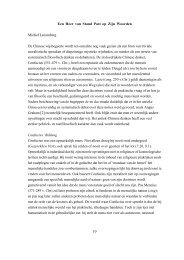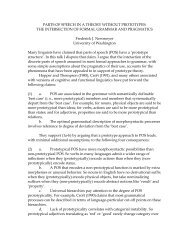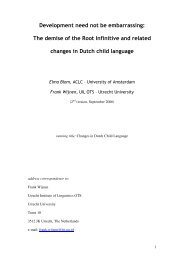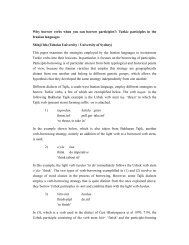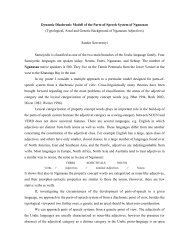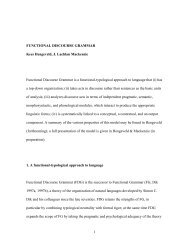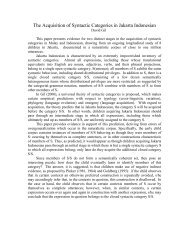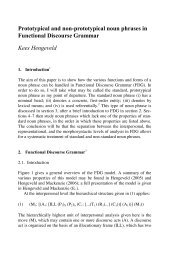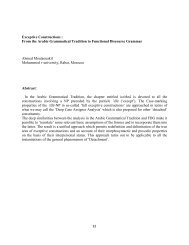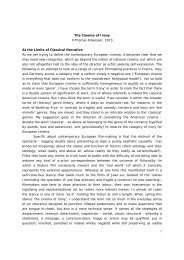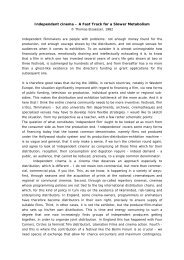The argument structure of deverbal nouns in Brazilian Portuguese
The argument structure of deverbal nouns in Brazilian Portuguese
The argument structure of deverbal nouns in Brazilian Portuguese
Create successful ePaper yourself
Turn your PDF publications into a flip-book with our unique Google optimized e-Paper software.
grammar, <strong>in</strong>sert<strong>in</strong>g de ‘<strong>of</strong>’ <strong>in</strong>to the prepositional slot for com ‘with’, an <strong>in</strong>sertion<br />
which seems to be motivated by the fact that the second <strong>argument</strong> is not a nom<strong>in</strong>al<br />
phrase but a non-f<strong>in</strong>ite clause, which means that the competition for expression as dephrase<br />
seems to be postponed.<br />
<strong>The</strong>re are some occurrences <strong>of</strong> first <strong>argument</strong>s expressed as adjectives, 6 as<br />
shown <strong>in</strong> (13).<br />
(13) tod-a a evolu-ção human-a... não deix-a<br />
every-F the.F evolve-NMLZ human-F not let-IND.PRS.3SG<br />
de s-er exatamente a evolu-ção d-o<br />
<strong>of</strong> be-INF exactly the.F evolve-NMLZ <strong>of</strong>-the.M<br />
domíni-o que o homem t-em sobre<br />
control-NMLZ that the.M man have-IND.PRS.3SG over<br />
a natureza... (EF-SP-405)<br />
the.F nature<br />
‘every human evolution... is simply no more than the evolution <strong>of</strong> the control man has over<br />
nature...’<br />
This k<strong>in</strong>d <strong>of</strong> formal expression has, <strong>of</strong> course, little to do with the competition<br />
between first and second <strong>argument</strong>s for the possessor phrase slot; it does, however,<br />
play an extremely important role <strong>in</strong> recover<strong>in</strong>g the NP o homem pré-histórico ‘the<br />
prehistorical man’. <strong>The</strong>re are only a small number <strong>of</strong> such constructions, which<br />
generally occur <strong>in</strong> the context <strong>of</strong> an underly<strong>in</strong>g <strong>in</strong>transitive verb, as <strong>in</strong> (13), and, to a<br />
lesser degree, <strong>in</strong> the context <strong>of</strong> a transitive <strong>in</strong>put verb, as <strong>in</strong> (14) and (15).<br />
(14) se ela foi cria-d-a... para um FIM...<br />
If she be.AUX.IND.PRF.3SG create-PAST.PTCP-F for an.M end<br />
Outr-o que NÃO... a contempl-ação estética... (EF-SP-405:55)<br />
Other-M than not the.F contemplate.NMLZ aesthetic<br />
if it was created... for an END... other than an aesthetic contemplation...’<br />
(15) depois de um-a represent-ação teatral (DID-SP-234:106)<br />
after <strong>of</strong> a-F represent-NMLZ theatrical<br />
after a theatrical representation<br />
<strong>The</strong> reason why the second <strong>argument</strong> is selected for overt expression <strong>in</strong> (14)<br />
and (15) has to do with the nature <strong>of</strong> the other <strong>argument</strong>s: <strong>in</strong> both cases the first<br />
<strong>argument</strong> has undeterm<strong>in</strong>ed reference. As such, there is no pragmatic need to express<br />
it. <strong>The</strong>re is a semantic and a pragmatic motivation for an adjectival expression <strong>in</strong> the<br />
pre-head position when the post-head one is also available: the semantic motivation<br />
has to do with the generic mean<strong>in</strong>g <strong>of</strong> the nom<strong>in</strong>al predication while the pragmatic<br />
motivation is related to the textual recover<strong>in</strong>g <strong>of</strong> <strong>nouns</strong> just mentioned before.<br />
Like adjectives, possessive pro<strong>nouns</strong> may be <strong>in</strong>serted <strong>in</strong>to the pre-head<br />
position. <strong>The</strong> sample conta<strong>in</strong>s only one case <strong>of</strong> pronom<strong>in</strong>al expression <strong>in</strong> the function<br />
<strong>of</strong> first <strong>argument</strong>, given <strong>in</strong> (16).<br />
(16) eu v-ou trabalh-ar com barro v-ou<br />
I go.AUX-IND.PRS.1SG work-INF with clay go.AUX-IND.PRS.1SG<br />
10




